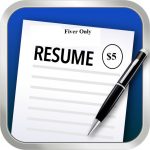Contents
For female wine drinkers, the scientific research community isn’t making things easy. The controversy over whether wines are a danger factor for cancer of the breast or may really avoid the disease is constantly on the rage on, because of three recent reports. Two studies reason that dark wine and dark wine chemicals are potential cancer of the breast preventatives. Another study, however, states that any alcohol, wine incorporated, raises the chance of cancer of the breast, even when consumed moderately.
The second study, presented in April in the American Association for Cancer Research (AACR) annual meeting in North Park, was lead-created by Jasmine Lew, a 4th-year medical student in the College of Chicago and investigator in the National Cancer Institute, which commissioned the research. The study team examined the consuming patterns of 184,418 postmenopausal women. After following a women for seven years, they identified 5,461 installments of invasive cancer of the breast and compared the speed of cancer versus alcohol-consumption habits.
"What we should found was that regular use of alcohol, even just in moderate amounts, led to an elevated relative chance of cancer of the breast," Lew told the crowd, adding the risk continued to be similar no matter beverage choice.
Based on Lew, the study discovered that ladies who drink between one and three drinks each day were built with a 24 percent elevated chance of cancer of the breast when compared with nondrinkers. When they drank greater than three, this risk elevated to 36 percent. When the women preferred wine, 1 to 3 servings meant a 20 % and the higher chances and most three equalled a 41 percent and the higher chances than nondrinking postmenopausal women.
The research isn’t openly readily available for review yet. It’s connected using the National Institutes of Health, and Lew stated it must undergo several amounts of government clearances before a manuscript could be posted. Nevertheless its findings echo similar work as reported by Kaiser Permanente’s Division of Research last September. Scientists theorize that alcohol affects the amount of hormones for example oestrogen and progesterone in postmenopausal women, which might trigger breast cells to get cancerous.
Another recent study, conducted through the Institut Universitaire de Recherche Clinique in Montpellier, France, also identified alcohol like a risk factor for cancer of the breast. However, after analyzing a population of ladies residing in the south of France, "where consuming wine is an essential part from the population’s nutritional habits," researchers discovered that one glass of vino each day was connected having a 40 % lower chance of cancer of the breast. Greater than a glass evened the danger to exactly the same levels as nondrinkers.
"The association between drinking and cancer of the breast continues to be largely investigated, however the results printed aren’t entirely consistent," the authors authored within the June publication of the Annals of Epidemiology, concluding that, "low and regular wine consumption doesn’t increase cancer of the breast risk." The Montpellier study used methods like the National Cancer Institute’s research, but checked out only one,359 women—a much smaller sized sample.
While observation studies like these take a look at lifestyle habits, scientists will also be analyzing the connection between cancer and wine within the laboratory. A group in the College of Nebraska has checked out the dark wine chemical resveratrol like a potential anti-cancer of the breast agent and located good results, based on a study printed within the This summer 2008 issue of Cancer Prevention Research.
They discovered that resveratrol suppresses the metabolic process of oestrogen, therefore protecting cells from becoming cancerous, in one of several anti-cancer of the breast activities the dark wine chemical exhibits.
"Resveratrol is able to prevent the initial step that happens when oestrogen starts the procedure leading to cancer by blocking the development from the oestrogen DNA adducts," explains co-author Eleanor Rogan, a cancer investigator in the College of Nebraska Clinic in Omaha. "We feel this could steer clear of the whole progression leading to cancer of the breast lower the street.Inch
Rogan and her team observed that resveratrol covered up manufacture of the enzyme CYP1B1, along with the formation of the carcinogen, 2,3,7,8-Tetrachlorodibenzo-p-dioxin. Both chemicals are known risks for cancer of the breast. In addition, resveratrol caused manufacture of another enzyme, quinone reductase, which accounts for lowering the activity of oestrogen. By looking into making oestrogen inactive, the research finds, resveratrol may reduce the connected chance of cancer of the breast.
The research results bolster the finding in 2004 by researchers in the College of Porto in Portugal who discovered that resveratrol, when utilized in the lab, might help get rid of cancer of the breast cells.
What was particularly notable for Rogan was that resveratrol seems effective even at small doses. Actually, the suppression of oestrogen metabolic process was observed in amounts as little as 10 micromoles per liter (the research used increments as much as 100 micromoles). Previous research has proven the average glass of dark wine could have between nine and 28 micromoles/liter of resveratrol.
The outcomes from the study, however, were met with fierce critique by cancer awareness campaigners. "It’s possible that resveratrol may eventually be progressed into a cancer-stopping drug, but any advantageous effects it’s in dark wine are likely completely outweighed through the alcohol," stated Henry Scowcroft, an info manager at Cancer Research United kingdom, a company that funds research in to the treatment and prevention of cancer.
"From the purpose of look at cancer prevention, there’s no such factor as ‘good alcohol.’ Overwhelming evidence shows that, even just in moderate amounts, alcohol increases the chance of several cancers including cancer of the breast," adds Scowcroft. "It’s possible that resveratrol, by itself, may eventually be progressed into a cancer-stopping drug, but any advantageous effects it’s in dark wine are likely completely outweighed through the alcohol."
Not every researchers accept Scowcroft and Lew. Dr. Curtis Ellison, a professor of drugs and public health at Boston College School Of Medicine, stated data more and more implies that for ladies who don’t binge drink, have sufficient folate intake, and aren’t on hormone-substitute treatment, the chance of cancer of the breast seems to improve just for consumers in excess of one and half drinks each day, about 6 or 7 ounces.
Ellison accepted that there might be an inadequate association for any slight rise in cancer of the breast risk among light drinkers, but added that, for ladies, responsible wine consuming isn’t without benefits. "The internet effects are striking, as small quantities of alcohol lower the chance of the greater-common reasons for dying among women, for example cardiovascular disease, stroke, hip fracture and dementia," he stated.
Resourse: http://winespectator.com/webfeature/show/id/




